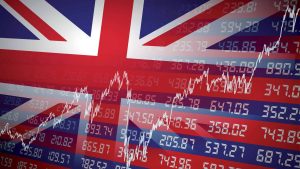With an index-busting 5.9% dividend yield, is Aviva an income share to consider?


A lot of investors like the prospect of share price growth over the long term, but with steady passive income along the way in the form of dividends. Not only has Aviva (LSE: AV) lately been trading at its highest share price for years, but the dividend has been growing steadily. Currently the yield stands at 5.9%.
So, is the FTSE 100 insurer a share income seekers ought to consider?
A steady industry, but with occasional storms
Although Aviva has been growing the annual dividend per share handily over the past few years, that has not always been the case. No dividend is ever guaranteed to last, after all. Aviva demonstrated that when it cut the dividend per share five years ago.
Insurance is a business sector with many desirable characteristics from an investor’s perspective. Demand is high, resilient, and largely predictable. The business model is proven and can be lucrative for many years on the go. As the insurer with the most customers in the UK, Aviva is well-positioned to benefit from such factors.
However, that strength also exposes it to risks. A lot of competition in the market can lead an underwriter to write policies at levels that hurt profitability. That was one of the challenges for rival Direct Line, which Aviva is in the process of taking over.
That takeover could help grow the business and give Aviva even greater economies of scale in the UK market. But it brings an additional concentration risk given the company’s strong reliance on the UK as its key market. It also risks distracting Aviva management’s attention from the rest of the business.
Lots to like here, including the yield
With the FTSE 100 currently yielding 3.6% on average, the Aviva dividend at its current share price is over 60% more lucrative than its peer group of leading blue-chip firms. For investors with an eye on long-term passive income streams, I think that could be attractive.
Not only that, but the payout per share will hopefully grow over time, subject to risks such as the ones I mentioned above. Aviva’s dividend policy is to “grow the cash cost of the dividend by mid-single digits”.
In other words, annual growth ought to come in at around 3%-7%. That is not in the dividend per share, but what it costs Aviva to pay. So if the firm buys back its own shares and cancels them (as it has repeatedly done in recent years), there will be an expanded pool of cash and fewer shares to divvy it up amongst. Therefore, annual dividend per share growth could exceed the mid-single-digits percentage increase of the cash cost.
Meanwhile, the business looks well set for the long term. Share price growth of 28% over the past year partly reflects City optimism about future prospects, in my view.
For a long-term buy and hold investor with an eye on earning income in years or even decades to come thanks to dividends, I certainly see Aviva as a share worth considering.
The post With an index-busting 5.9% dividend yield, is Aviva an income share to consider? appeared first on The Motley Fool UK.
But what does the head of The Motley Fool’s investing team think?
Should you invest £1,000 in Aviva right now?
When investing expert Mark Rogers has a stock tip, it can pay to listen. After all, the flagship Motley Fool Share Advisor newsletter he has run for nearly a decade has provided thousands of paying members with top stock recommendations from the UK and US markets.
And right now, Mark thinks there are 6 standout stocks that investors should consider buying. Want to see if Aviva made the list?
More reading
- £10,000 invested in Aviva shares 5 years ago would have generated total dividend income of…
- At an 18-year high, can the Aviva share price keep rising?
- Can ChatGPT really build the perfect passive income portfolio? I put it to the test
- A 7.2% forecast yield and 35% under ‘fair value’, should I buy more Aviva shares after the strong trading update?
- £9,000 in savings? Here’s how that could earn £285 a month in passive income
C Ruane has no position in any of the shares mentioned. The Motley Fool UK has no position in any of the shares mentioned. Views expressed on the companies mentioned in this article are those of the writer and therefore may differ from the official recommendations we make in our subscription services such as Share Advisor, Hidden Winners and Pro. Here at The Motley Fool we believe that considering a diverse range of insights makes us better investors.





